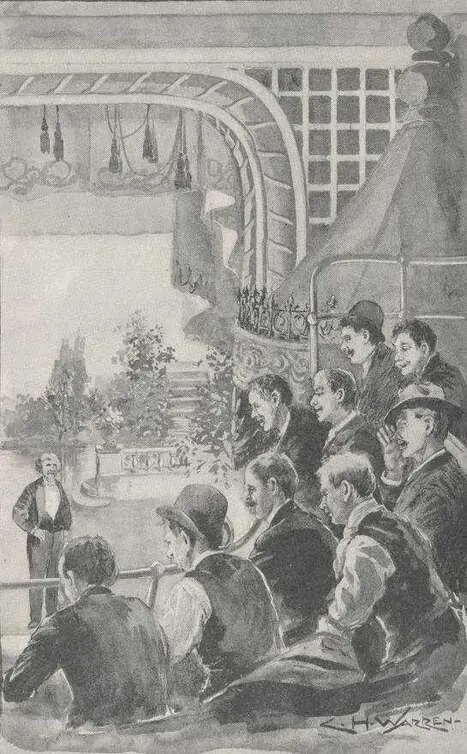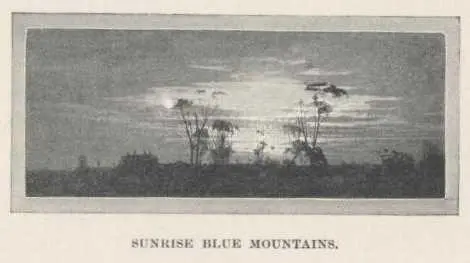Mark Twain - Following the Equator
Здесь есть возможность читать онлайн «Mark Twain - Following the Equator» весь текст электронной книги совершенно бесплатно (целиком полную версию без сокращений). В некоторых случаях можно слушать аудио, скачать через торрент в формате fb2 и присутствует краткое содержание. Год выпуска: 2004, Жанр: Классическая проза, Юмористическая проза, на английском языке. Описание произведения, (предисловие) а так же отзывы посетителей доступны на портале библиотеки ЛибКат.
- Название:Following the Equator
- Автор:
- Жанр:
- Год:2004
- ISBN:нет данных
- Рейтинг книги:3 / 5. Голосов: 1
-
Избранное:Добавить в избранное
- Отзывы:
-
Ваша оценка:
- 60
- 1
- 2
- 3
- 4
- 5
Following the Equator: краткое содержание, описание и аннотация
Предлагаем к чтению аннотацию, описание, краткое содержание или предисловие (зависит от того, что написал сам автор книги «Following the Equator»). Если вы не нашли необходимую информацию о книге — напишите в комментариях, мы постараемся отыскать её.
Following the Equator — читать онлайн бесплатно полную книгу (весь текст) целиком
Ниже представлен текст книги, разбитый по страницам. Система сохранения места последней прочитанной страницы, позволяет с удобством читать онлайн бесплатно книгу «Following the Equator», без необходимости каждый раз заново искать на чём Вы остановились. Поставьте закладку, и сможете в любой момент перейти на страницу, на которой закончили чтение.
Интервал:
Закладка:
In America we have no annual supreme day; no day whose approach makes the whole nation glad. We have the Fourth of July, and Christmas, and Thanksgiving. Neither of them can claim the primacy; neither of them can arouse an enthusiasm which comes near to being universal. Eight grown Americans out of ten dread the coming of the Fourth, with its pandemonium and its perils, and they rejoice when it is gone—if still alive. The approach of Christmas brings harassment and dread to many excellent people. They have to buy a cart-load of presents, and they never know what to buy to hit the various tastes; they put in three weeks of hard and anxious work, and when Christmas morning comes they are so dissatisfied with the result, and so disappointed that they want to sit down and cry. Then they give thanks that Christmas comes but once a year. The observance of Thanksgiving Day—as a function—has become general of late years. The Thankfulness is not so general. This is natural. Two-thirds of the nation have always had hard luck and a hard time during the year, and this has a calming effect upon their enthusiasm.
We have a supreme day—a sweeping and tremendous and tumultuous day, a day which commands an absolute universality of interest and excitement; but it is not annual. It comes but once in four years; therefore it cannot count as a rival of the Melbourne Cup.
In Great Britain and Ireland they have two great days—Christmas and the Queen's birthday. But they are equally popular; there is no supremacy.
I think it must be conceded that the position of the Australasian Day is unique, solitary, unfellowed; and likely to hold that high place a long time.
The next things which interest us when we travel are, first, the people; next, the novelties; and finally the history of the places and countries visited. Novelties are rare in cities which represent the most advanced civilization of the modern day. When one is familiar with such cities in the other parts of the world he is in effect familiar with the cities of Australasia. The outside aspects will furnish little that is new. There will be new names, but the things which they represent will sometimes be found to be less new than their names. There may be shades of difference, but these can easily be too fine for detection by the incompetent eye of the passing stranger. In the larrikin he will not be able to discover a new species, but only an old one met elsewhere, and variously called loafer, rough, tough, bummer, or blatherskite, according to his geographical distribution. The larrikin differs by a shade from those others, in that he is more sociable toward the stranger than they, more kindly disposed, more hospitable, more hearty, more friendly. At least it seemed so to me, and I had opportunity to observe. In Sydney, at least. In Melbourne I had to drive to and from the lecture-theater, but in Sydney I was able to walk both ways, and did it. Every night, on my way home at ten, or a quarter past, I found the larrikin grouped in considerable force at several of the street corners, and he always gave me this pleasant salutation:
"Hello, Mark!"
"Here's to you, old chap!

"Say—Mark!—is he dead?"—a reference to a passage in some book of mine, though I did not detect, at that time, that that was its source. And I didn't detect it afterward in Melbourne, when I came on the stage for the first time, and the same question was dropped down upon me from the dizzy height of the gallery. It is always difficult to answer a sudden inquiry like that, when you have come unprepared and don't know what it means. I will remark here—if it is not an indecorum—that the welcome which an American lecturer gets from a British colonial audience is a thing which will move him to his deepest deeps, and veil his sight and break his voice. And from Winnipeg to Africa, experience will teach him nothing; he will never learn to expect it, it will catch him as a surprise each time. The war-cloud hanging black over England and America made no trouble for me. I was a prospective prisoner of war, but at dinners, suppers, on the platform, and elsewhere, there was never anything to remind me of it. This was hospitality of the right metal, and would have been prominently lacking in some countries, in the circumstances.
And speaking of the war-flurry, it seemed to me to bring to light the unexpected, in a detail or two. It seemed to relegate the war-talk to the politicians on both sides of the water; whereas whenever a prospective war between two nations had been in the air theretofore, the public had done most of the talking and the bitterest. The attitude of the newspapers was new also. I speak of those of Australasia and India, for I had access to those only. They treated the subject argumentatively and with dignity, not with spite and anger. That was a new spirit, too, and not learned of the French and German press, either before Sedan or since. I heard many public speeches, and they reflected the moderation of the journals. The outlook is that the English-speaking race will dominate the earth a hundred years from now, if its sections do not get to fighting each other. It would be a pity to spoil that prospect by baffling and retarding wars when arbitration would settle their differences so much better and also so much more definitely.
No, as I have suggested, novelties are rare in the great capitals of modern times. Even the wool exchange in Melbourne could not be told from the familiar stock exchange of other countries. Wool brokers are just like stockbrokers; they all bounce from their seats and put up their hands and yell in unison—no stranger can tell what—and the president calmly says "Sold to Smith & Co., threpence farthing—next!"—when probably nothing of the kind happened; for how should he know?
In the museums you will find acres of the most strange and fascinating things; but all museums are fascinating, and they do so tire your eyes, and break your back, and burn out your vitalities with their consuming interest. You always say you will never go again, but you do go. The palaces of the rich, in Melbourne, are much like the palaces of the rich in America, and the life in them is the same; but there the resemblance ends. The grounds surrounding the American palace are not often large, and not often beautiful, but in the Melbourne case the grounds are often ducally spacious, and the climate and the gardeners together make them as beautiful as a dream. It is said that some of the country seats have grounds—domains—about them which rival in charm and magnitude those which surround the country mansion of an English lord; but I was not out in the country; I had my hands full in town.
And what was the origin of this majestic city and its efflorescence of palatial town houses and country seats? Its first brick was laid and its first house built by a passing convict. Australian history is almost always picturesque; indeed, it is so curious and strange, that it is itself the chiefest novelty the country has to offer, and so it pushes the other novelties into second and third place. It does not read like history, but like the most beautiful lies. And all of a fresh new sort, no mouldy old stale ones. It is full of surprises, and adventures, and incongruities, and contradictions, and incredibilities; but they are all true, they all happened.

CHAPTER XVII.
The English are mentioned in the Bible: Blessed are the meek, for they shall inherit the earth.
—Pudd'nhead Wilson's New Calendar.
Интервал:
Закладка:
Похожие книги на «Following the Equator»
Представляем Вашему вниманию похожие книги на «Following the Equator» списком для выбора. Мы отобрали схожую по названию и смыслу литературу в надежде предоставить читателям больше вариантов отыскать новые, интересные, ещё непрочитанные произведения.
Обсуждение, отзывы о книге «Following the Equator» и просто собственные мнения читателей. Оставьте ваши комментарии, напишите, что Вы думаете о произведении, его смысле или главных героях. Укажите что конкретно понравилось, а что нет, и почему Вы так считаете.











